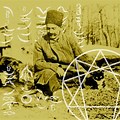The Chakras - Fragrant Heavens









The Chakras - Fragrant Heavens
In the etheric body there are centres of energy, sometimes described as wheels or vortexes.
There are seven main chakras and twenty-one minors.
Healers often bring one of the minor - the spleen - chakras into the main group of seven because the spleen is so directly involved in the immune system and in healing the physical body. The main chakras are said to be related to the physical body in the following way:
- Crown Centre: pineal gland (or some believe pituitary)
Brow Centre: pituitary gland (or some believe pineal), eyes and brain.
Throat Centre: speech and hearing, nervous system, thyroid gland, lungs and bronchial tubes, digestive tract.
Heart Centre: heart and lungs
Solar Plexus: stomach, digestive system
Sacral Centre: genital system
Base Centre: Kidneys, excretion, adrenal glands.
The 21 Minor Chakras
- 2 at the front of both ears, midway between the upper ear and the ear lobe
2 above each breast
1 where breast bone meets
2 in both palms of the hands
2 in both soles of the feet
2 at the outer corner of the eye-
2 at the gonad gland
1 close to the liver
1 by the stomach
2 by the spleen
2 back of the knees
1 connected with the vegus gland, near the thymus gland
1 close to the solar Plexus
Reference: The Fragrant Heavens : Valerie Ann Worwood
Teacher's throat slit 'after someone dreamed she'd insulted Prophet Muhammad'








Teacher's throat slit 'after someone dreamed she'd insulted Prophet Muhammad'
Provided by Metro Critics say pupils in Pakistan’s madrassas are at risk of being brainwashed by hardline clerics – file image – file image (Picture: AFP/Getty Images)
A teacher was murdered by a colleague and her two nieces after a relative dreamt she had insulted the Prophet Muhammed, police said.
The trio ambushed Safoora Bibi yesterday at the main gate of the all-girls religious school, according to authorities in Pakistan.
She was attacked with a knife and a stick and died after her throat was slit, they added.
The main suspect is a colleague who allegedly planned the crime with two nieces studying at the Jamia Islamia Falahul Binaat school.
Police said the girls told them a relative had dreamt the victim ‘had committed blasphemy’ against the Prophet Mohammed.
Few issues in Pakistan are as galvanising as blasphemy, and even the slightest suggestion of an insult to Islam can supercharge protests and incite lynchings.
Officers said they were also investigating if the main suspect, Umra Aman, had a personal grudge against Ms Bibi.
Yesterday’s incident took place in Dera Ismail Khan in the country’s ultra-conservative northwestern Khyber Pakhtunkhwa province bordering Afghanistan.
Known as madrassas, religious schools have long served as vital lifelines for millions of impoverished children in Pakistan, where social services are chronically underfunded.
But critics say students can be brainwashed by hardline clerics who prize rote learning of the Koran over core subjects such as maths and science.
Rights groups say Pakistan’s blasphemy laws are often wielded to settle personal vendettas.
Last year, a Sri Lankan factory manager working in Pakistan was beaten to death and set ablaze by a mob after being accused of blasphemy.
The Centre for Social Justice – an independent group advocating for the rights of minorities – says at least 84 people were accused of committing blasphemy last year, and three people were killed by lynch mobs over similar allegations.
Reference: Metro: James Hockaday
Why do Muslims fast for Ramadan? Meaning behind fasting explained and who is exempt during the holy month
![]()
![]()
![]()
![]()
![]()
![]()
![]()
![]()
![]()
Why do Muslims fast for Ramadan? Meaning behind fasting explained and who is exempt during the holy month
In Islam, fasting is a pivotal practice for followers of the religion.
Fasting symbolises one of the five pillars that constitute the main belief and actions of a practicing Muslim.
Ramadan is a month of fasting, prayer, reflection and community, for Muslims, as they work to feel closer to God on the ninth month of the Islamic calendar.
Why do Muslims fast during Ramadan?
Iqbal Akhtar, associate professor at Florida International University told The Conversation website: “Muslims abstain from food, water, smoking, sex and all sensory pleasures from dawn to dusk during Ramadan, the ninth month of the Islamic lunar calendar.
“This is a divine commandment in the Koran and exemplified in the life of the Prophet Muhammad.”
He explains: “At its core, fasting is about conquering human pride to connect with God.
“Indeed, the term Islam itself means submission to God in Arabic. Muslims believe that fasting develops submission to God, empathy with the poor and repentance and gives time for spiritual introspection.”
What foods are halal?
During Ramadan, when breaking fast, Muslims will eat only foods that are permissible under Islamic law. The Arabic word for such foods, writes religion scholar Myriam Renaud, is “halal.”
Renaud explains that Islamic law draws on three religious sources to determine which foods are halal. These include “passages in the Quran, the sayings and customs of the Prophet Muhammad, which were written down by his followers and are called “Hadith” and rulings by recognised religious scholars.”
In the United States, some states such as California, Illinois, Michigan, Minnesota, New Jersey and Texas restrict the use of halal label for foods that meet Islamic religious requirements. Various Muslim organisations also oversee the production and certification of halal products, she writes.
All foods are considered halal except the following (which are haram):
- Alcoholic drinks and intoxicants
- Non-Halal animal fat
- Gelatine – from non-Halal source (fish gelatine is Halal)
- L-cysteine (if from human hair)
- Lard
- Lipase (only animal lipase need be avoided)
- Non-halal animal shortening
- Pork, bacon/ham and anything from pigs
- Unspecified meat broth
- Rennet (All forms should be avoided except for plant/microbial/ synthetic – rennet obtained from halal slaughtered animal is permissible).
- Stock (a blend of mix species broth or meat stock)
- Tallow (non-Halal species)
- Carnivorous animals, animals with fangs, carrion, birds of prey and certain other animals
- Foods contaminated with any of the above products
Reference: Lucy-aplin
The Incorruptibles: saints whose corpses never decay
 v
v







The Incorruptibles: saints whose corpses never decay
The concept of incorruptibility is as mysterious as it sounds.
The idea that some bodies do not decompose naturally after death is a sign of divine intervention according to the Catholic and Eastern Orthodox churches.
Many of these men and women have been canonized, largely thanks to their corpses defying the laws of nature.
Curious to learn more about the incorruptibles?
Reference: Stars Insider
Articles-Latest
- Koran burning conviction sparks fury as blasphemy law 'returns to UK'
- Robert Francis Prevost - Pope Leo XIV
- Pope Francis' death follows recent health challenges. Here's what we know about how he died.
- Easter April 2025 - international Celebrations
- The Rule of the twelve psalms -Worthy is the Lamb
- Religion in Africa Before Christianity and Islam
- 6 The Origin of Yahweh
- Dumo Di Milano
- What Did the Crow Tribe Believe In: Discover The Beliefs!
- 7 Reasons Historic Christianity Rejects the Book of Enoch
- 8 Breathtaking Mountain Monasteries Around the World
- Ethiopian Bible is oldest and most complete on earth
- Muhammad Muhammad was a prophet and founder of Islam.
- World Day of the Poor – SVP Christmas Campaign 2024
- Pope Francis to open 5 sacred portals on Christmas Eve — for a ritual that’s never been done before
- The 144,000 in Revelation
- Over 73 dead bodies 'used for meditation', 600 crocs in a pond, found in two Thai temples
- Occultism: Western Occult Tradition
- What is a Mudra
- Blood Sacrifices: Ancient Rituals of Life and Death
Articles-Most Read
- Home
- Let There Be Light
- Plants that feel and Speak
- The Singing Forest
- The Singing Forest-2
- Introduction
- Meditation
- Using Essential Oils for Spiritual Connection
- Heaven Scent
- Plants that Feel and Speak-2
- Purification
- Making the Spiritual Connection
- Anointing
- Essential Oils: The unseen Energies
- The Sanctity of Plants
- The Aroma Of Worship-Foreward
- The Aroma Of Worship - Introduction
- Methods Of Use
- Spiritual Blending
- Handling and Storage







